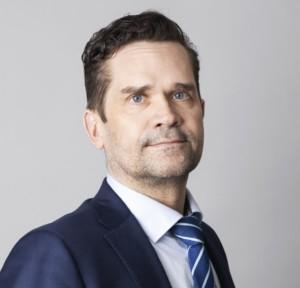China’s Belt and Road Initiative (BRI) focuses on infrastructure development and investments in over 80 countries, including in Europe. The initiative has been increasingly attracting attention and even causing concern at regional as well as global levels. It is occasionally seen as being at the core of China’s geo-economic and geostrategic attempt to establish a Sinocentric regional order. Even so, there are calls for a precise definition of the initiative, both in terms of the resources invested, as well as those projects that explicitly fall under the BRI banner. Is criticism of Chinafunded connectivity projects justified, and are fears of China’s growing political influence in Europe warranted? How should Europe respond following the EU’s own connectivity strategy of September 2018? Will the future be marked by competition or cooperation with China?
Puhujat




Puheenjohtaja

Dr. Mika Aaltola is the Director of the Finnish Institute of International Affairs. He also holds the rank of Docent at Tampere University. He has been a Visiting Fellow at Cambridge University, Sciences Po (CERI), and Johns Hopkins, a visiting professor at the University of Minnesota as well as a tenured professor of International Relations and European Union Affairs at Tallinn University (part-time). Aaltola’s areas of expertise include the U.S. global role, dynamics of major power politics, democratic vulnerability, pandemic security, and Finnish foreign policy.
His published peer reviewed monographs include research on Finnish foreign policy (Tampere University Press, 2003), on the cultural foundations of the U.S. foreign and security policy (Brill, 2008), on ethics and humanitarianism as geopolitical practices (2008, Palgrave), on pandemic security (Routledge 2012), on the power politics of U.S. global infrastructure (Palgrave 2014, Routledge 2016, co-authored). His latest published monograph is Democratic Vulnerability and Autocratic Meddling – The ‘Thucydidean Brink’ in Regressive Geopolitical Competition (Palgrave-Macmillan, 2021). He has also published a monograph on Finnish foreign policy after Crimea (Docendo 2019) as well as an edited volume together with Mikael Wigell and Sören Scholvin (Geo-economics and Power Politics in the 21st Century: The Revival of Economic Statecraft, Routledge, 2018).
He defended his doctoral degree at Tampere University in 1999 (“The Rhythm, Exception, and Rule in International Relations: The Case of Mad Cow Disease”), received his MA degree from Tampere University (1994) and BA degree from Columbia University (1992).
